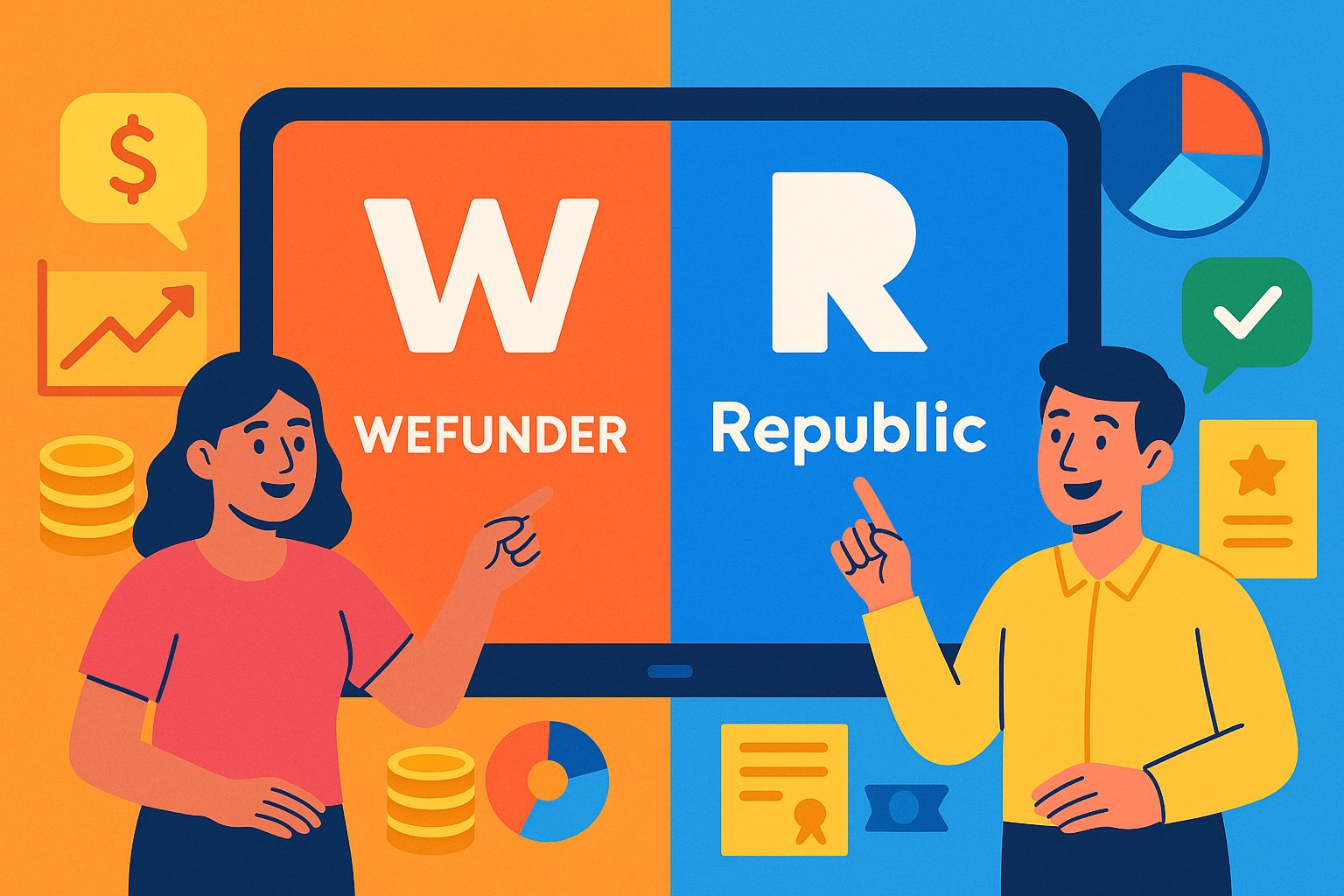Setting Your Fee Compass: The Quest for Cost-Effective Crowdfunding
For founders embarking on the equity crowdfunding odyssey, fees can either be the wind in your sails or a ballast dragging you below deck. Every percentage point carved away by platform success fees, processing charges, or optional service add-ons represents capital diverted from product development, marketing campaigns, or team expansion. In a landscape teeming with promising platforms—each touting unique value propositions—identifying the one with the lowest total cost of capital demands careful scrutiny. This guide dives deep into the fee architectures of the leading equity crowdfunding players—Republic, NetCapital, SeedInvest, StartEngine, and Wefunder—assessing not only headline percentages but hidden charges, optional bundles, and fee-reduction incentives. By the end, you’ll have a clear roadmap for selecting the platform that preserves the maximum share of your hard-won funds.
Decoding the Fee Framework: Beyond the Headline Percentages
At first glance, equity crowdfunding platforms break down fees into two principal categories: the success fee—a percentage of the total funds raised—and the payment processing fee, which covers credit card and ACH transactions. Yet this rudimentary view omits the nuanced tiers of optional services: legal compliance bundles, marketing support packages, secondary-market promotions, and even milestone-based fee rebates. When founders compare platforms purely on their success fee, they often overlook these supplementary costs, which in aggregate can rival or even exceed the headline rate. A truly cost-conscious founder must evaluate the interplay between base fees, mandatory charges, and the optional services they will realistically need to execute a compliant, high-impact campaign.
Republic’s Lean Model: Lowering the Entry Barrier
Republic positions itself as the cost-competitive leader among major U.S. platforms. With a 6% success fee—the lowest baseline of the big five—and a 2% payment processing charge, Republic creates an attractive starting point for capital-efficient raises. The platform further reduces friction by crediting back a nominal upfront due-diligence fee (typically $1,500) upon campaign success. Republic’s optional services—video production, PR coordination, and legal document templates—are offered à la carte, allowing founders to pay only for what they need. For startups with in-house marketing teams and established legal relationships, Republic’s lean core fees translate directly into a higher net raise. The trade-off, however, lies in the DIY aspects of campaign support; founders seeking bundled compliance services may find themselves piecing together external solutions.
NetCapital’s Niche Efficiency: Specialized Savings
NetCapital may be lesser known than its contemporaries, but it boasts a competitive fee structure tailored for specialized offerings—real estate, crypto assets, and asset-backed securities. Its success fees range from 6% to 8% depending on offering type, paired with a 2% to 2.5% processing fee. Crucially, NetCapital frequently negotiates volume-based discounts for larger raises or repeat issuers in niche verticals. Because the platform integrates its own KYC/AML and accreditation checks into the base fee, founders avoid separate vendor invoices. For companies operating within NetCapital’s sweet spots, the bundled compliance and streamlined workflows can yield a lower overall cost of capital than a higher-volume generalist platform. The platform’s niche focus means, however, that founders outside these verticals may not reap the same fee efficiencies.
SeedInvest’s Curated Premium Model: Paying for Prestige
SeedInvest trades lower fees for a curated ecosystem of accredited investors and rigorous vetting. Its 7.5% success fee and 2.5% processing charge place it on the higher end of the spectrum, but the platform offsets costs with in-house due diligence, audited financial reviews, and PR amplification baked into the core package. For startups seeking larger individual checks and institutional credibility, SeedInvest’s higher fees can be justified by the caliber of its investor base and the reduction in external compliance spending. Founders without strong brand recognition or substantial internal resources may view these bundled services as cost-effective relative to hiring separate legal teams and PR agencies. Conversely, those with tighter budgets and established networks may find SeedInvest’s fee premium harder to swallow.
StartEngine’s Balanced Proposition: Mid-Range Fees with Extras
StartEngine’s fee model sits squarely in the middle: a 7% success fee combined with a 2% processing fee. Its base package includes campaign hosting, basic compliance checklists, and access to a mature secondary-market infrastructure. For founders seeking more advanced analytics, CRM integrations, or promotional boosts on StartEngine’s marketplace, optional premium bundles range from 1% to 3% extra. These add-ons can include enhanced data dashboards, automated investor communications, or featured placements in StartEngine’s high-traffic newsletters. While the headline fee is not the lowest, StartEngine’s robust toolkit allows founders to selectively pay for capabilities that drive conversion—potentially delivering a higher return on fee dollars spent. However, campaigns that leverage only the core package may end up paying more than a Republic or NetCapital campaign of similar scale.
Wefunder’s Premium Support: Cost Versus Convenience
Wefunder, the oldest of the major platforms, commands a 7.5% success fee plus a 2% processing fee, mirroring SeedInvest’s premium rate. What sets Wefunder apart is its comprehensive “all-in-one” legal and marketing package, available as an optional add-on of 1% to 2%. This bundle includes Form C drafting, audited financial statements, state Blue Sky filings, referral widget automation, and campaign coaching through the “Wefunder Fellows” program. For first-time founders or those without robust external support, this turnkey service can streamline launch and reduce the risk of compliance missteps. The convenience, however, comes at a price: campaigns that could otherwise self-manage legal and marketing may find Wefunder’s fees less competitive than Republic’s or NetCapital’s bare-bones rates.
Modeling Net Proceeds: A Comparative Scenario
To crystallize the fee impact, consider a hypothetical $500,000 raise across platforms, with average transaction volume triggering a 2.25% processing fee. On Republic, fees total $42,375—$30,000 (6%) plus $11,250 (2.25%)—leaving $457,625. On NetCapital, using a 6.5% success fee and 2.25% processing, fees amount to $42,875, netting $457,125. StartEngine’s fees—$35,000 (7%) and $11,250—sum to $46,250, netting $453,750 before optional extras. SeedInvest charges $37,500 (7.5%) plus $11,250, totaling $48,750 and netting $451,250. Wefunder’s $37,500 and $11,250, plus a hypothetical 1.5% compliance bundle ($7,500), yields $56,250, netting $443,750. This scenario underscores Republic’s advantage for founders willing to self-manage compliance, while platforms with premium services justify higher fees through support value.
Unlocking Discounts: Negotiated Rates and Milestone Rebates
Several platforms incentivize larger raises with sliding fee scales or milestone-based rebates. Republic occasionally offers a 0.5% success fee reduction for campaigns exceeding $1 million. NetCapital’s volume discounts can shave 0.5–1% off success fees for repeat issuers with documented performance. StartEngine’s tiered fee program reduces its success fee by up to 1% once a campaign surpasses certain funding thresholds. Founders poised for high-velocity raises should negotiate bespoke terms during onboarding, leveraging projected raise size as bargaining power. By stacking these negotiated discounts, founders can drive down the effective cost of capital well below the advertised headline rates.
Strategies for Fee Optimization
Savvy founders adopt multiple tactics to preserve capital. Consolidating investor payments into fewer, larger transactions—where compliance allows—can reduce per-transaction processing fees. Harnessing in-house teams for legal document preparation, video production, or PR can sidestep platform add-on costs. Staggering raises across tranches may unlock milestone rebates and maintain momentum. Additionally, strategic partnerships with co-investment funds or sponsor vehicles—common on Republic—can accelerate early commitments and boost total raised, potentially triggering higher-raise fee discounts. A deliberate combination of these strategies can yield net proceeds that rival the most cost-effective platform’s baseline performance.
Balancing Cost and Convenience: Finding Your Fee Sweet Spot
While Republic and NetCapital present the lowest headline fees for founders able to self-manage ancillary services, platforms like StartEngine, Wefunder, and SeedInvest offer bundled convenience and premium support—reducing operational risk at the expense of higher fees. The optimal choice hinges on a founder’s existing resources, risk tolerance, and strategic priorities. First-timers with lean teams may prize Wefunder’s turnkey legal and coaching packages despite the fee premium. Seasoned entrepreneurs with in-house counsel and marketing teams may gravitate toward Republic or NetCapital to maximize net capital. Growth-stage companies eyeing institutional investors and secondary liquidity may justify StartEngine’s mid-range fees, while those seeking a curated, accredited-only offering can leverage SeedInvest’s all-inclusive model.
The Final Verdict: Aligning Fees with Foundational Needs
In 2025’s competitive equity crowdfunding ecosystem, the “lowest fees” label must be weighed against the platform’s overall value delivery. Republic’s 6% success fee offers the clearest path to cost efficiency—provided founders can self-manage compliance, marketing, and investor relations. NetCapital matches or edges out Republic in niche verticals through volume discounts and integrated KYC/AML services. For campaigns demanding turnkey support, the higher fees of Wefunder or SeedInvest deliver bundled peace of mind. StartEngine’s balanced approach empowers data-driven founders to selectively augment base services without overpaying for unwanted extras. The true cost of capital emerges only when you model net proceeds, negotiate rebates, and apply strategic fee-optimization tactics.
By aligning platform choice with your team’s capabilities, risk profile, and fundraising objectives, you can transform fees from a dreaded deduction into a strategic variable—maximizing the capital that fuels your startup’s next breakthrough.




